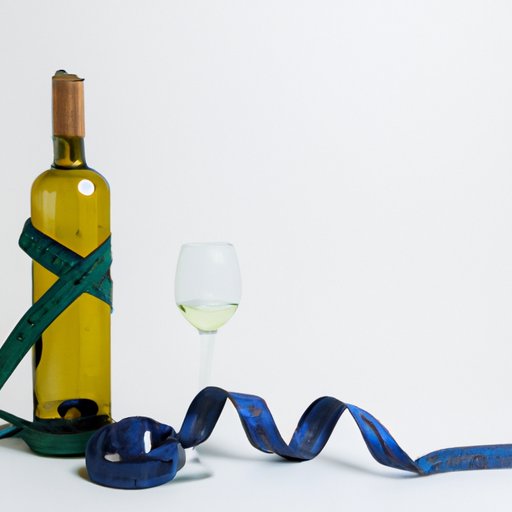
Introduction
Alcohol is a double-edged sword. It may help you unwind and feel relaxed, but it also comes with consequences, including weight gain. The calories in alcoholic drinks quickly add up, leading to unwanted pounds. Fortunately, with some expert tips, it’s possible to shed alcohol weight and keep it off. In this article, we will explore 10 proven strategies and tips to help you achieve your fitness goals while still enjoying the occasional drink.
“10 Tips for Losing Alcohol Weight and Feeling Great”
To lose alcohol weight, you don’t have to stop drinking altogether. Here are ten tips to help you shed pounds while still enjoying your favorite drinks:
Eat Before Drinking
One of the main reasons people gain weight from drinking alcohol is eating more while drinking. Counteract this effect by eating a nutritious meal before drinking to help you feel fuller and avoid overeating.
Limit Your Alcohol Intake
Sipping your drink slowly and drinking alcohol-free drinks in between your alcoholic drinks will help you consume less alcohol. Also, set a limit on the number of drinks you have each day or week and stick to it.
Choose Lighter Drinks
Swap out high-calorie drinks like beer, wine, and sugary cocktails for lighter options like light beer, wine spritzers, and low-calorie spirits (e.g., vodka soda).
Mix Wisely
Choose calorie-free mixers like seltzer, diet soda, or other low-calorie mixers instead of sugary drinks like juices or tonic water. Also, avoid sweet syrups and shrubs.
Be Mindful of What You Eat
Instead of eating high-fat foods while drinking, opt for healthier snacks like veggies and hummus, nuts, or fruit. These foods will help you feel fuller for longer and won’t add to your calorie intake.
Stay Hydrated
Drink plenty of water before and after drinking to stay hydrated and avoid overconsumption. Alcohol is a diuretic, and dehydration can lead to overeating and weight gain.
Avoid Heavy Drinking
Heavy drinking can lead to severe harm to your health, including disrupting your sleep, damaging your liver, and increasing your risk for heart disease, cancer, and other health problems. It can also lead to weight gain.
Add More Exercise to Your Routine
Exercise burns calories and helps boost your metabolism, which is essential for maintaining a healthy weight. Adding more activity to your daily routine, like taking the stairs or walking to work, can help shed unwanted pounds.
Maintain a Healthy Diet
Eating a healthy diet that’s rich in protein, whole grains, and fresh fruits and vegetables can help you lose weight and improve your overall health. Ensure you’re consuming a balanced diet that meets your nutritional needs, and limit foods high in added sugars or saturated fats.
Keep a Food and Drink Journal
Keep track of your alcohol intake and food intake in a journal to help you monitor and adjust habits that work best for you. Tracking your progress will help you stay motivated, and it will help you identify areas in which you should or should not improve.
“The Science Behind Alcohol Weight Gain and How to Overcome It”
Alcohol is essentially empty calories, meaning it provides little to no nutritional value. Yet, it can lead to weight gain in several ways:
Affects Metabolism
Drinking alcohol slows down your metabolism, making it more challenging to burn calories efficiently. It also converts calories into fat, which leads to increased weight gain.
Influences Appetite
Consuming alcohol triggers hunger by lowering blood sugar levels. This can lead to overeating and consuming more calories than your body needs.
Disrupts Sleep
Drinking alcohol disturbs your sleep pattern, resulting in poor quality of rest. Inadequate sleep can lead to hormonal imbalances that lead to overeating and weight gain.
Science-Backed Tips for Overcoming Alcohol Weight Gain:
Several studies suggest science-backed tips for overcoming the challenges of alcohol weight gain:
Lift Weights
Resistance training (lifting weights) improves your metabolism, helping you burn calories more efficiently. Additionally, lifting weights helps your body break down alcohol faster, which can prevent the accumulation of fat.
Increase Protein Intake
Protein helps you feel fuller for longer and can help reduce appetite, decrease calorie intake, and burn more calories. Plus, high-protein foods provide enough energy for gaining muscle mass and can help balance out alcohol-caused muscle loss.
Get Enough Sleep
Getting enough restful sleep is crucial for weight loss and overall health. It improves metabolism and promotes a healthy lifestyle. Aim for 7-8 hours of restful sleep each night.
“How to Enjoy Drinking Without Sabotaging Your Fitness Goals”
To lose alcohol weight, you don’t have to stop drinking entirely. There are many ways to enjoy drinking while still maintaining your fitness goals:
Choose Moderation Over Excess
If you’re trying to lose weight, aim to have only one or two drinks instead of four or five. This way, you can still socialize and enjoy your drink without compromising your goals.
Order Mindfully
Choose low-calorie drinks, choose drinks without added sugar or syrups and order light beer or wine spritzers. Or order mixed drinks with fruits and herbs or go for a drink of vodka and soda.
Pair Drinks with Healthy Foods
Pairing drinks with healthy snacks like veggies and hummus, nuts, or fruit can help you stay fuller for longer and prevent you from overeating. Choose a high-protein snack paired with a low-calorie drink.
“Discover the Hidden Calories in Your Favorite Drinks”
It’s essential to understand the calorie content of your favorite alcoholic drinks before ordering. Below is an overview of popular alcoholic beverages:
Beer
Average calories per pint (568 ml) of a regular pint of beer: 180.
Wine
Average calories per 5-ounce serving of wine: 100-120.
Cocktails
The calorie content of a cocktail depends on the ingredients used to make them. Cocktails can range from 150-700 in calories. Choose gin or vodka-based cocktails instead of sugary cocktails like margaritas.
Lower-Calorie Drink Options and Recipes:
Choosing lower-calorie drink options, or following a recipe with fewer calories, can help you keep your calorie intake under control:
Vodka Soda With Lime
100ml vodka, 200ml soda, and a few squeezes of fresh lime.
Red Wine Spritzer
A 5oz glass of red wine mixed with some seltzer and ice. 90 calories in total
Low-Cal Mojito
Muddle mint, lime, and a few drops of stevia in a glass. Add crushed ice and 1.5 oz of white rum. Top off with soda or seltzer.
“Losing Alcohol Weight: Tips From Fitness Experts and Nutritionists”
Certified nutritionists and fitness experts suggest the following tips for losing alcohol weight:
Stick to a Routine
Maintain consistency with your drinks and food intake schedule to help regulate your appetite, metabolism, and weight gain.
Choose Healthy Foods
Eating balanced and healthy foods rich in fiber, protein, and other nutrients can help fuel workouts, balance your health, and promote weight loss.
Stay Active
Incorporate exercise into daily routines, try weightlifting or HIIT activities to boost your metabolism, and promote fat-burning.

“7 Simple Habits That Will Help You Lose Alcohol Weight”
There are many simple habits that you can adopt that will help you with losing alcohol weight:
Drink More Water
Consuming more water helps you stay hydrated and feel fuller for longer periods. It can also help balance out some of the damage caused by alcohol. Aim for at least eight glasses of water daily.
Swap Out Sugary Drinks
Avoid high-calorie, sugary drinks, and sodas, and opt for lighter fare like seltzer, tea, or coffee.
Planning Ahead
Choose and plan for healthy snacks and meals and use apps to monitor calorie intake.
Chew Your Food Slowly
Chewing more slowly increases digestion, helps activate the hormones responsible for hunger and fullness, and helps prevent from binge eating while drinking.
Avoid Later Night Snacking
Plan your meals well and avoid snacking during the late-night hours to avoid weight gain.
Conclusion
Losing alcohol weight can be challenging, but with the right tips and strategies, you can achieve the results you want. Implementing the strategies we have discussed, like limiting alcohol intake, eating before drinking, and staying active, will help you shed unwanted pounds and maintain a healthy lifestyle. Remember, it’s essential to pair your drinking with healthy habits to prevent alcohol-related weight gain effectively. So, start today, include healthy habits in your lifestyle, and enjoy your favorite drinks without worrying about weight gain.




